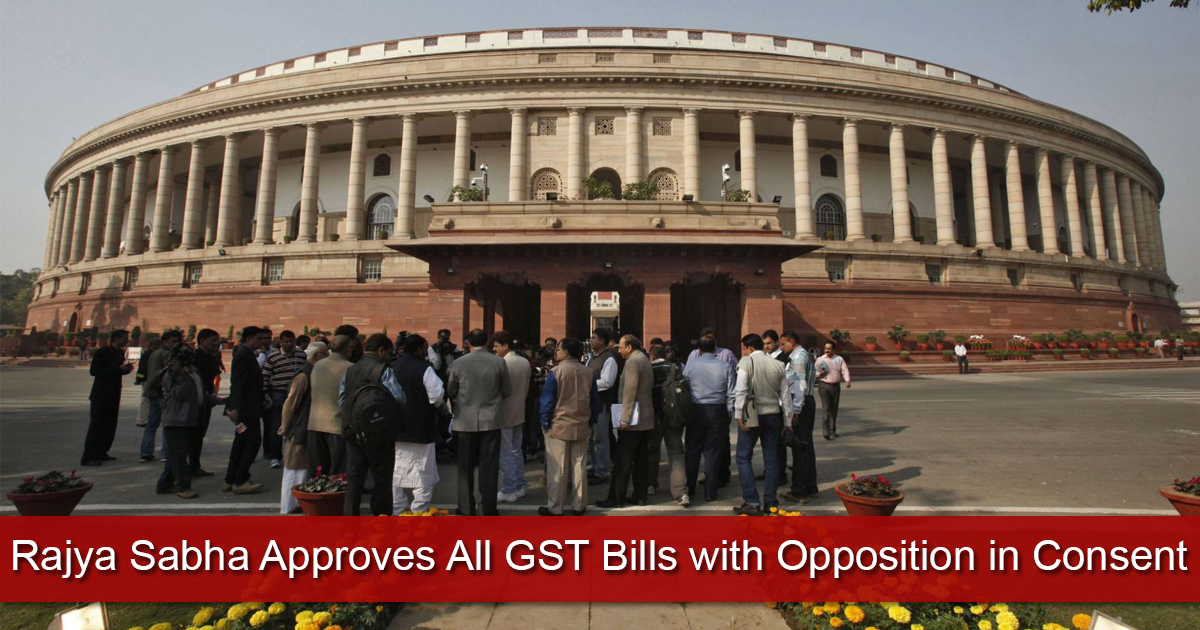Finally, the GST has seen the light of its day as the Rajya Sabha has approved each and every bill assumed in the regime to take over all previous forms of taxes prevailing in the country. The major concentration to be focused on the fact that the bills were passed without any amendments which have also given the idea of political consensus over the goods and services tax.
The bills included four draft laws—the central GST Bill, the integrated GST Bill, the Union territory GST Bill and the GST (Compensation to states) Bill and all were cleared by the Rajya Sabha after they were submitted as money bills in the first row. Now the remaining portion includes enactment once after they get honourable president’s assent. The processing of GST bill is also reliable as the cooperation was granted total with the consent of opposite parties.
The member of Congress Jairam Ramesh was the key person who was earlier demanding some amendments in the proposed bills but was quiet and didn’t pressed for any changes while the meeting was going on. The said reason behind this acceptance is former prime minister Manmohan Singh which has made it clear to all the congress fraternity to be aligned with the ongoing GST and make a consensus accordingly.
Even in the gratitude, Union Minister Arun Jaitley thanked everyone and specially Manmohan Singh for the overwhelming support and coordination whenever needed by the parties. The finance minister said that “I have no difficulty in sharing the credit for this with everyone, particularly state governments because we are now creating a situation which was originally not anticipated in the Constitution.”
In the journey, ruling government did come under some obligations and criticism over the provisions of the bill which included powers designated to the GST council, the private undertaking of GST network and some provisions under anti-profiteering. But the union finance minister was able to rescue each and every point of the council and said that GST council is an example of significant and sensitive freedom and democracy in which the decisions were taken by everyone’s consent.
He also said that “What you decide in the council becomes a federal arrangement between the center and the states and between the states themselves. But Parliament and state assemblies have plenary powers. GST council recommended these bills and they have come for Parliament’s approval, When GST council fixes the rates, every state will have to place it in the budgetary provisions. If assemblies have concerns, then they can bring it to the GST council.”
Also, there were some allegations raised by the congress MP Kapil Sibal who was discontented with the anti-profiteering provision of search seizure and arrest. As the MP notified that the complex structure of tax strategy can not give freedom and also can not allow one to go deep and find out the profit distribution to an each and every consumer at that deep level. In this allegation he said that, “How will the extent of the price reduction be determined and who will do it?.” He pointed out that the provision may bring corruption within the taxmen.
